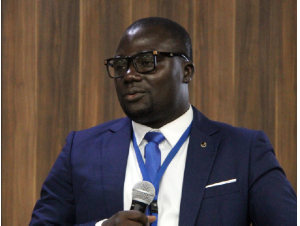The Okyehene, Osagyefuo Ofori Panin, has urged the management of the Youth Employment Agency (YEA) led by its Chief Executive Officer (CEO) Mr Kofi Baah Agyepong to give hope to the Ghanaian youth with the projects the Agency is undertaking.
Speaking during a courtesy call on him, Osagyefuo Ofori Panin elaborated the importance of Agriculture to the growth of the nation and noted that, the YEA has the responsibility to engage the youth in productive ventures in agriculture especially, for them to turn the fortunes of the country around for the better.
According to him, over one billion people, two thirds of them women and children, live in extreme poverty of less than one dollar a day and over 60% of the adult population in Sub-Saharan Africa is engaged in Subsistence agriculture with reliance on rainfall, due to the absence of irrigation.
In essence, he averred that, there is no all-year-round employment leading to mass rural poverty and unemployment.
He mentioned that the Youth In Agriculture module by the YEA has come at an opportune time to close that gap and create wealth for the youth.
Okyehene urged the YEA CEO to help build and develop the youth in agriculture, assist them with technical, logistical and financial support and guide them to make good use of the land.
He said the importance of Agriculture cannot be overemphasized.
The Okyenhene, Osagyefuo Amoatia Ofori Panin, however, called for a paradigm shift from commercial monoculture agriculture to sustainable organic farming to protect human health and the planet.
He said, boosting productivity, fostering competitiveness and ensuring that small-scale farmers have greater access to markets are key to West Africa realizing its full agricultural potential.
He urged the YEA and government to significantly invest in policy support that targets broader agricultural development and greater coordination among producers, private industry and the public and financial sectors.
According to him, although much is being done, more needs to be done in terms of basic infrastructure, investments, research and development and agricultural processing, stressing that farmers in Ghana have little incentive to increase production if they can’t sell their crops because of cheaper and easily accessible imports, whilst policy and market incentives are needed to improve the competitiveness of locally grown crops and increase their share in the consumer market.
“They need specific support to improve access to labour-reducing equipment and credit for post-harvest processing and marketing, and to strengthen their technical and organizational capacity,” he told YEA.
NAY/NOQ
Business News of Monday, 19 February 2024
Source: www.ghanaweb.com

















